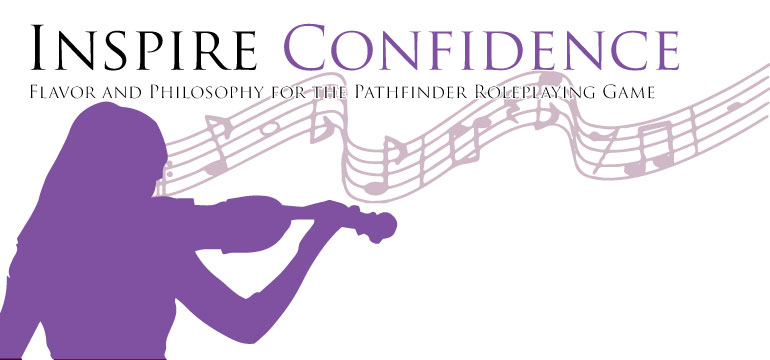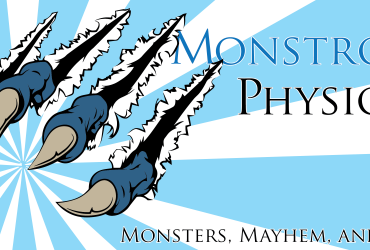Several people have taken me up on my offer to answer questions for new players and/or for fostering diversity and inclusion. You can also send your questions to KnowDirection@hotmail.com, no question is too small. Really.
The real world happened (again) since my last blog, so in addition to the two questions I received, I am going to address a third situation, which is important so I will address it first.
Q: This week the gaming community lost Steve Russell of Rite Publishing. How can I be supportive to my friends who were close to him, to anyone affected by his passing, or whenever something tragic happens in the future?
A: Everyone deals with grief and emotionally painful situations in their own way, recognizing that you may not have been as close to the deceased as someone else will help to determine how you will grieve and how you can best help those around you who are also grieving. Elizabeth Kubler Ross wrote a book on the stages of grieving, but that’s more of a guide to the process book, rather than a how to book. There is no set manner in which grieving occurs and as a person in a support role to another’s grieving, your most important role is to hold the space for those who are grieving. To hold the space means we allow those who are mourning the time and space to work through their own complex emotions and to find their new baseline without their loved one, without judgement or criticism of them or their process.
Under no circumstances should you ever tell a person who is mourning to “get over it” or imply that they have mourned long enough. As a nurse, I was instructed to never hand a person a tissue while grieving, but rather to have them nearby, so that they were within each reach of anyone who wanted or needed one. While on the surface, handing someone a tissue may seem like a kind gesture and an acknowledgement of their needs, the act of giving someone a tissue may send the message that they have cried long enough and to get on with “it”. Also, refrain from saying anything disparaging about the deceased, especially in front of their loved ones. It doesn’t matter how you felt about them or that you didn’t get along with the deceased. If you can’t say something nice, say nothing at all. If you struggle with that, do not be in a place where you are tempted to say something that will hurt the living loved ones.
Some people need only a few days to process the situation, others may require weeks, months, or even years, depending on their relationship. The best thing you can do is to be a sympathetic ear – listen more, speak less. There is nothing you can say that will make this better, so keeping to simple “I am sorry for your loss” and check on them regularly, perhaps not every hour, but don’t go days if you know your friend is suffering. If you offer help, you must follow through with your offer, as those who are grieving will need reliable help more now than ever. Sharing grief together with others who are grieving is therapeutic and the reason we have funerals, wakes, or memorials, take part in them if you can, to support both yourself and others.
Be aware that things can reopen emotional wounds further down the road too, like big events where that person would regularly attend, or situations that just remind us of them – their favorite story or restaurant. Those times are going to require some tenderness on our part as emotions bubble back up to the surface.
Be gentle and kind to one another. We can never predict who the deceased may have deeply touched and it would be an injustice to those around us to dismiss their emotional attachment to the individual. Regardless of what we think, it is their grief, not ours, so treat it with respect.
To all who are grieving now, you do have my deepest condolences. If you are so moved, donations to help Steve’s widow, Miranda and their unborn child, Steve’s sister, Nikole, set up a GoFundMe for the family here – https://www.gofundme.com/2d5qnes. Nikole also set up an email address for the baby, so if you have a story you would like to share, so the baby might one day know a little something about his/her father, you may do so here – babyrussell2017@gmail.com
Q: Do you have any advice on how to handle a chronically negative player? There’s a guy at my FLGS who’s constantly bringing the group down with his bad attitude. He’s friendly enough to other players. But whenever something doesn’t go his way he’ll start going off about game balance, or poor game design, or how something is either over or under powered.
A: It can be a real drag getting all your gaming gear together, driving to a location that makes you put on pants and shoes in order to enter, and then have to listen to someone complain the whole time you’re there. It makes me want to tap that person on the shoulder and say “Hey, you know if this isn’t fun for you, there are hundreds, maybe thousands of other things you could be doing right now, how about you go do one of them? Because you are really harshing my vibe.” But I don’t, because I promised myself that I would be a nicer person from now on.
So how can you handle a person who brings the down the fun? It can be difficult, because as we know, most gamers have at some point been marginalized, they are people with feelings and we really don’t want to hurt them, because we’re nice people who just want to get together for some fun and gaming. The answer depends a little bit on the situation in which the negativity is happening, since I don’t have access to that information, I’m going to give some examples of different options, some of them are going to touch on the same subject, so read them all for pointers.
In all cases, try to use your best diplomatic and neutral tone in your conversations.
- This is an organized game play where there is clear leadership or a gaming club –
Speak with the leader of your group. They have taken on the responsibility of herding the players and it is best that they address any group conflicts, since they are the final authority for the group, let them do their job.
Reach out to the leader, preferably in private. Let them know your concerns. If the other player has rules balance concerns, it is worth noting that, since it could be a real issue that needs to be reviewed.
Don’t give ultimatums – “If this guy keeps complaining I’m leaving.” That’s not really productive. But do mention that you find it discouraging and unwelcoming to come to game under these circumstances. Both you and the individual in question are members of this group and as long as you’re in good standing, you should be considered with equal consideration.
If your group’s leader is dismissive to you, then you probably need to decide whether you are going to vote with your feet or if you can live with the complainer. You can also try to speak to the complainer on your own, which is covered further down. - There is a de facto leader to your group –
Similar to the situation above, however the de facto leader may be a GM. The GM is likely to know that the player has issues with game balance. At this point it is okay to say to the GM “This complaining is really discouraging me to come to game” if it is true. It still falls to the GM to say “I looked at the rules and they seem balanced, perhaps we can figure out a better class for you to play that does what you want, but we’re going to be sticking to the rule set. If you don’t like the way the game is designed, I’m really sorry.” - The FLGS gaming is a small group of regulars who get together on a schedule to play the same game/games at a specific time and day without any organized leadership or you are the unfortunate leader of this group –
This one is tricky if there is no real leadership, the decision to speak up falls to you to decide if this is a mine field you want to walk into, because no matter how you approach this individual, you may be burning a bridge.
If you are the unfortunate leader of this group, I’m really sorry, you can’t let this fester, this must be addressed. If you have a player who is regularly complaining about the rules or how “unfair” the game is, you must nip this in the bud or you will lose players. The worst part is that you’ll lose players and they will never tell you why they are leaving, they’ll just stop showing up and then one day you’ll look around and it will be you and the person who is complaining left.
Have your conversation in private, do not go off on the player at the table, this is imperative. If you must, take a buddy, preferably someone who is either neutral or friendly to you both, but don’t gang up on the player in question. You must reach out to the player to help them first, otherwise you are doing everyone a disservice.Let the player know that you understand that they have issues with the rules, but that the rules were agreed upon. Offer to sit down and go over the rules with them. Don’t “nerdsplain” the rules to the individual, because they are already in the community and should know the rules and “nerdsplaining” is rude. However sometimes we overlook rules or misuse them. As an aside, we have been using some rules wrong at our table for years and it wasn’t until we got into game designing professionally that we realized our mistake, so don’t assume you know the rules either.
While looking at the rules system, refer to the publisher’s website and make sure you have all the errata at hand for review.
Once you confirm that the player (and you) both have a firm understanding of the rules in question, it is time to ask “Is this really the right character/army/whatever for your style of play?” If there was some misunderstood rules, then hopefully this will help the player to see that they either have misunderstood a rule and that misunderstanding has led to frustration or the player needs to come to terms with the incongruity of their expectation of the rules and the actual rules themselves. If you find a rule that is being played wrong, take responsibility for that (if you’re the leader) or bring it to the group with the individual so that they aren’t dismissed as just complaining again. - Hopefully you will not reach this part of the conversation. If the player is uninterested in changing concepts or continues to complain, then it’s time to be gentle but direct. “Player, I understand you don’t like the rules, but these are what we’re using. I have worked with you on the rules and your options and this is the choice you made. If you don’t like your choice, you can change it, but you’re going to have to stop complaining about the rules. We are all here to have fun and play this game. We want you to be here and have fun too. Your comments have become detrimental to the overall group’s enjoyment of the game. I cannot allow you’re comments to make this unfun for everyone else, they have as much right to enjoy this time as you do.”
While there is no one size fits all answer to this kind of issue, I caution you to be kind and generous to the person in question. It never hurt anyone to be nice and chances are they’ve never had someone be respectful of them as a person. If they are just flat out wrong, be gracious in how you address it. They may dig in and push back until they leave you no alternative, but it will work to everyone’s best advantage if you don’t choose the nuclear option first, trust me on this one.
Q: During system kitbashing you talked about using magic – what about psionics as the sci-fi replacement for magic? You’ve mentioned 3pp (Dreamscarred Press has psionics rules that are well-established and thorough) and you used a Star Wars publicity still (the Force seems to fit the stereotype of psionics), so are psionics a valid option in place of magic-in-space?
A: Oh my gosh yes! While I do not have any real personal experience with the psionics system as a gamer, the concept represents the strongest presence of non-magical magic of the sci-fi genre. The best questions to ask yourself is “Do I like this game mechanic/rule?” and “Will this fit with my vision of the game I want to run?” If you answer “Yes” to both of them, then put it in. While I know a lot of gamers, I know very few people who have the time and energy to sit around writing game mechanics all day for their homebrewed games. System kitbashing means you can have the best of whatever world you want to create but don’t have the time or energy to create it. In addition to Dreamscarred Press and their extensive psionics line (that’s why they set up shop in the first place!), Rogue Genius Games put out Ultimate Occult with Alex Augunas (disclosure, Alex is a member of the Know Direction staff) which brings a psionics feel to Paizo’s Occult Adventures, there are a definitely several options if you want your game to have a more psychic vibe to the magic.









